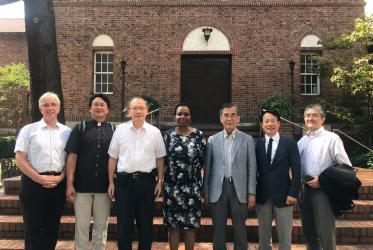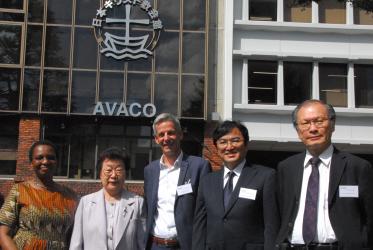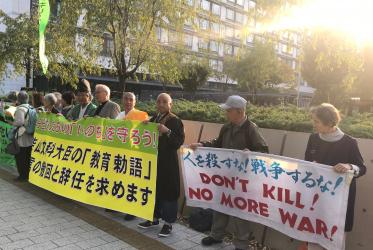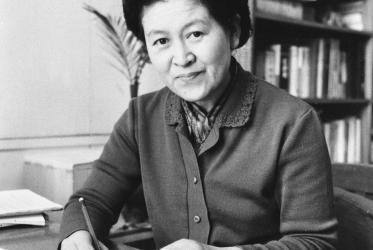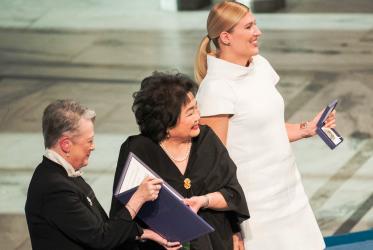Displaying 1 - 20 of 34
Unity is key when health crisis poses new challenges in Asia
28 February 2022
WCC offers prayer during Japanese peace conference
11 March 2021
In Japan, spirit of koinonia deepens
26 September 2019
In Japan, theologians reflect on today’s global manifestations of racism
18 September 2019
In Japan, indigenous and ecumenical youth call for action against racism
12 September 2019
WCC represented at G20 Interfaith forum in Tokyo
13 June 2019
A tribute to former WCC president for the Asia-Pacific
27 April 2018
G7 must address famine
22 May 2017

